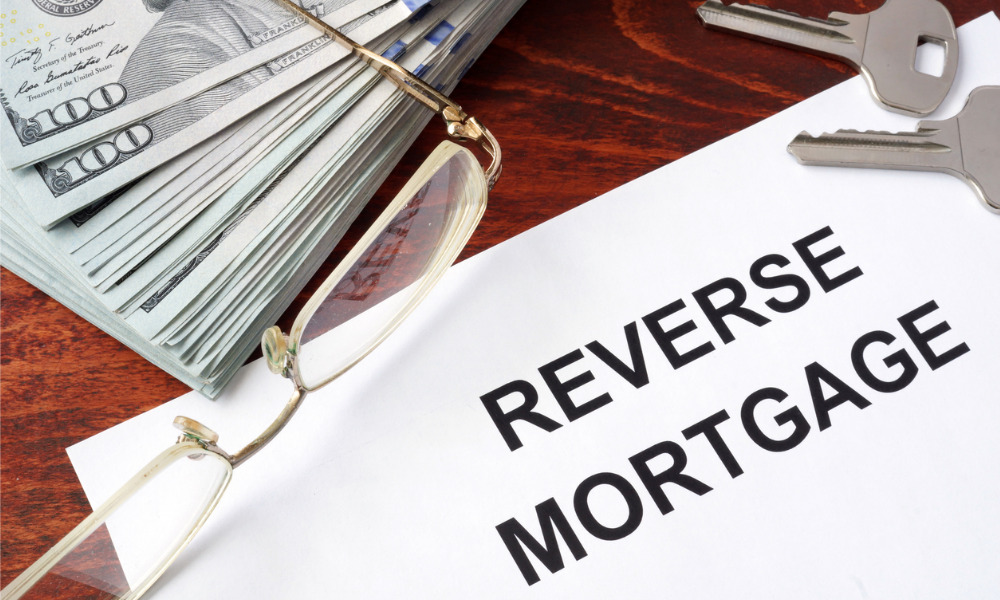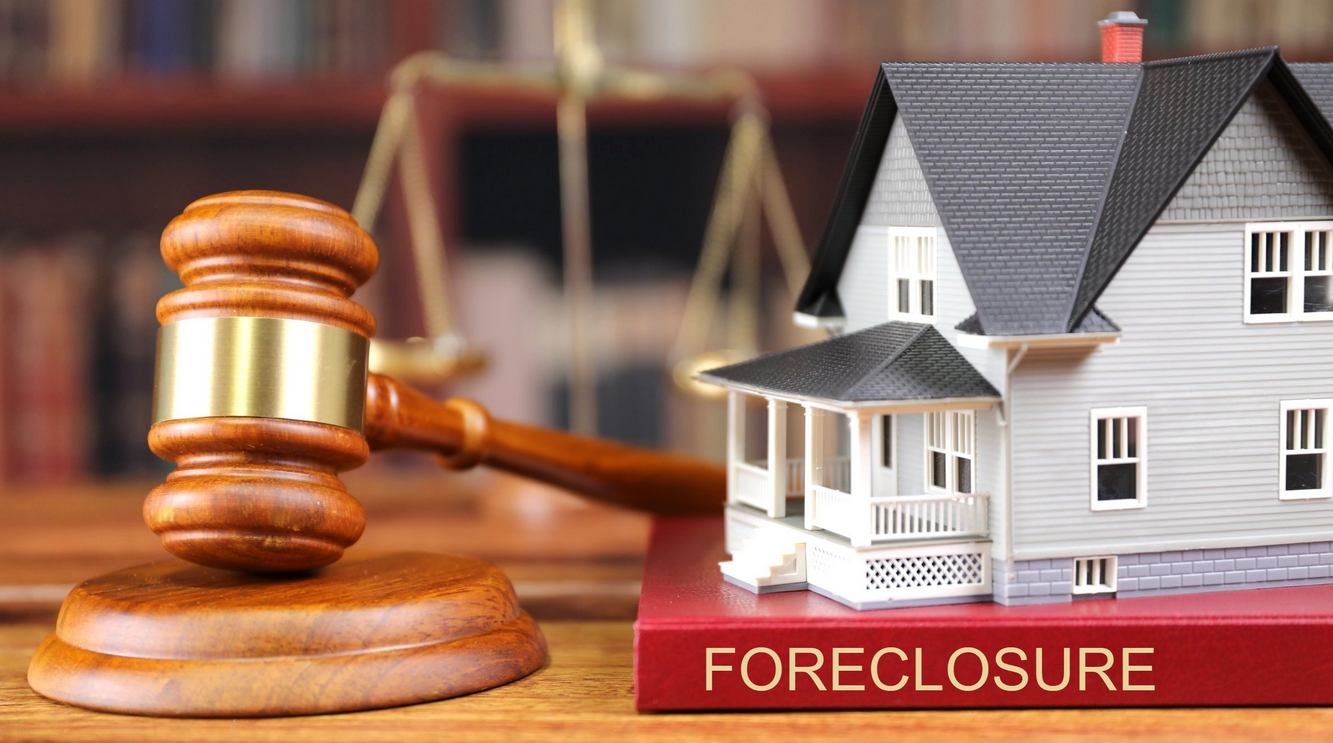A reverse mortgage may offer benefits, but it is important that you know the risks as well. Here is everything you need to know before getting your reverse mortgage

A reverse mortgage is a loan that lets you get money from your home equity—and without having to sell your home. In Canada, you must be at least 55 years to take out a reverse mortgage. If you are that age, and you decide a reverse mortgage is the best move for you financially, you can borrow up to 55% of the current value of your property.
The upsides of a reverse mortgage are obvious: you can remain in your home and gain some security for retirement, to name a few.
There are, however, risks. Before committing to a reverse mortgage, it is important to understand what it is, as well as the potential benefits and downsides.
But don’t worry—we've got you covered. Here is everything you need to know about reverse mortgages in Canada. For the mortgage professionals who frequently visit our website, this is an excellent article to pass along to anyone who has questions for you about reverse mortgages in Canada.
What is a reverse mortgage?
A reverse mortgage is a loan secured by your property that lets you receive up to 55% of the home's value, minus the cost of any interest you have accrued. In other words, you can get a loan that will allow you to gain access to money from your home equity, while you still live there. You do not have to sell your property first to gain access to that equity.
The older you are and the more your home is worth, the larger the amount you may potentially receive. However, both you and your spouse (if applicable) need to be 55 years of age or older to qualify in Canada. Different from a line of credit or a traditional mortgage, a reverse mortgage does not require that you repay a portion of the loan or interest on the loan at regular intervals (like monthly). Typically, instead you would repay a reverse mortgage in a one-time payment, such as when you:
- Sell your property
- Move out of the home
- Pass away (or when you and your spouse pass away)
Reverse mortgage: An example
Linda and David have been retired for several years and want to finance travel plans but do not have enough funds. To get the money necessary, the married couple could sell the property they have lived in for 40 years. The only issue is, they still want to live there.
If they decided to get a reverse mortgage, they could continue owning their property and get the funds required to make their travel plans a reality. They would not have to repay the amount they borrowed—and the interest accrued—until they sold their property.
In this scenario, another option includes taking out a home equity line of credit, and either repaying the loan over a long period or simply paying interest every month.
What are the benefits of getting a reverse mortgage?
Getting a reverse mortgage has become increasingly popular for Canadian homeowners aged 55 years and older. Reverse mortgages allow you to tap into the home equity that you have built up in your home. There are no monthly mortgage payments, but you will still have to pay property taxes, maintenance, and insurance.
You will not have to pay for the loan until you pass away, you sell the property, or you move out. Since there are no monthly payments and you receive your home equity as tax-free money, reverse mortgages are a popular choice for many Canadian homeowners.
Let’s look at the benefits of getting a reverse mortgage:
- Retirement security
- You remain in the home
- Helps pay existing home loan
- Eliminate tax liability
- Added protection if the balance is more than the property value
Let’s take a closer look:
1. Retirement security
A reverse mortgage will be especially beneficial to you if you are a retiree who does not have a lot of cash savings or investments, but have a lot of wealth built up in your property. A reverse mortgage allows you to turn that equity into cash that you can use to pay for expenses in retirement.
2. You remain in the home
Rather than selling your property to gain access to the built-up equity in your home, you can keep the property and still get money out of it. In other words, you do not have to downsize or get priced out of your neighbourhood if you had to move.
3. Helps pay existing home loan
To take out a reverse mortgage, your home does not have to be paid off. You can use the money that you get from your reverse mortgage to repay an existing home loan, freeing up funds to put toward other expenses.
4. Eliminate tax liability
When you take out a reverse mortgage, you receive the money of the loan as tax-free cash. This also means that you can use the money however you want.
5. Added protection if the balance is more than property value
In certain instances, the value of your property may wind up being less than the total amount owed on the reverse mortgage. One example of this is if home prices drop. If that happens, your heirs do not have to worry about repaying the balance.
What are the drawbacks of getting a reverse mortgage?
As we have seen, there are plenty of benefits to getting a reverse mortgage—each one would be enough to seriously consider taking out one. There are, however, also some risks to consider. Here is a look at some of the downsides of getting a reverse mortgage:
- Risk of foreclosure
- Less inheritance
- Interest
- Impact to retirement benefits
- It’s complicated
Here is a closer look at each of the potential drawbacks of taking out a reverse mortgage.
1. Rick of foreclosure
To qualify for a reverse mortgage, you first must be able to afford the costs associated with owning your property (taxes, insurance, etc.). You are also required to live in the property as your principal residence for most of the year. If you fail to make these payments or live off the property for most of the year, you may be in danger of defaulting on the reverse mortgage. If could also mean that you will lose your home to foreclosure.

Foreclosure by Nick Youngson CC license.
2. Less inheritance
While owning a home is a great way to build generational wealth, a reverse mortgage often requires the property to be sold to repay the debt. Your debt accumulates and might grow as high as the value of your home, meaning, usually, the home must be sold or turned over to the lender to satisfy the debt. Additionally, a reverse mortgage can consume the equity in your home. By the time the property must be paid off, there might not be any equity to leave to your heirs.
3. Interest
Because you are not required to pay off the loan prior to the maturity date, interest continues to accrue—and can continue being a significant cost. The reason why interest can become so unruly is that it is compounded, which means that you pay interest on the interest.
For instance, if you take out $50,000 through a reverse mortgage with an annual interest rate of 4.5%, and sell your property after 10 years, you will end up paying over $77,000 in accrued interest. If, say, you were to wait another 10 years, the accrued interest would reach over $120,000.
4. Impact on retirement benefits
A reverse mortgage might not be considered income for tax reasons. It may, however, affect your ability to qualify for other need-based government assistance programs. For this one, it is best to do your research, discuss it with a benefits specialist, and ensure your eligibility for other programs will not be compromised by your reverse mortgage.
5. It’s complicated
This one is exactly as it sounds—taking out a reverse mortgage can be complicated. There are numerous rules and caveats to a reverse mortgage, and some of the risks might not be worth the extra money. Until you understand the terms, you should approach reverse mortgage offers warily.
Which Canadian banks offer reverse mortgages?
In Canada, two financial institutions offer reverse mortgages. The first is HomeEquity Bank, which offers the Canadian Home Income Plan, or CHIP, across Canada. You can get a reverse mortgage either directly through HomeEquity Bank or through a mortgage broker. The second is Equitable Bank, which offers reverse mortgages in some major urban centres.
Prior to taking out a reverse mortgage, it is important to shop around. Your own financial institution might offer other products that meet the requirements that you are looking for.
Reverse mortgage: Alternatives
Here are some potential alternatives to taking out a reverse mortgage:
- Get another type of loan, like a personal loan, credit card, or line of credit
- Sell your home
- Purchase a smaller home
- Rent another apartment or home
- Move into assisted living (or other alternative housing)
It is important to understand fully how a reverse mortgage works ahead of time, and how it may impact your home equity in the long run.
Reverse mortgage: What to ask your lender
Prior to taking out a reverse mortgage, it is important to understand what you are getting into. Here is a list of questions that you can ask your lender about reverse mortgages in Canada:
- How do I get money from a reverse mortgage?
- Which fees will I have to pay?
- What interest rate do I have to pay on the money that I borrow?
- What might cause me to default on the loan?
- What penalties might I have to pay if I sell my home within a certain period?
- How much time do I have to pay off the loan’s balance if I die?
A reverse mortgage is essentially a loan that you can take out on your home while still living in it. Now that you know which lenders offer reverse mortgages in Canada, as well as which questions to ask them, you can decide whether it is the right move for you. Remember: while there are many benefits, there are also downsides.
Becoming a mortgage broker specializing in reverse mortgages involves developing a deep understanding of the intricacies of reverse mortgage products and regulations, staying updated on industry changes, and providing expert guidance to homeowners seeking to leverage their home equity for financial flexibility in retirement.
Before committing yourself to getting your reverse mortgage, do your research, such as checking in on what the best mortgage lenders in your area can do for you.
Have experience with reverse mortgages in Canada? Let us know in the comment section below.



